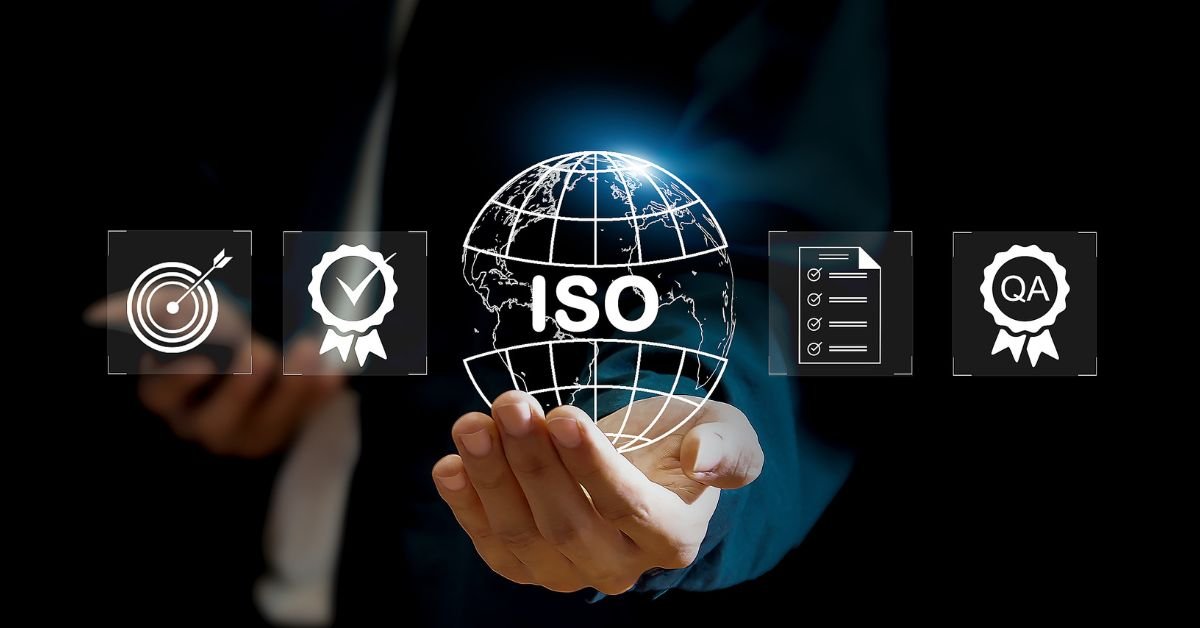ESG Certification for Companies in Malaysia: Criteria and Procedures – The Environmental, Social, and Governance (ESG) criteria have become vital to the organisations that want to demonstrate their intentions to conduct business sustainably and responsibly. Malaysia is rapidly advancing in terms of the adoption of Environmental, Social, and Governance (ESG) owing to regulations, customer demands, and high transparency. The article explores the Environmental, Social, and Governance ( ESG ) certification criteria and procedures in Malaysia along the most pertinent questions to businesses and consumers, as well as take you through what is required in 2025 and beyond.
What Is Environmental, Social, and Governance (ESG) and Why Does Certification Matter?
Environmental, Social, and Governance (ESG) refers to the three areas, which are Environmental, Social, and Governance, that shape how a company operates and reports on sustainability:
- Environmental: Focus on climate action, resource use, emissions, and impact on ecosystems.
- Social: Examines worker well-being, diversity, community relations, and customer rights.
- Governance: Examines board structure, audit practices, transparency, ethics, and anti-corruption measures.
Certification validates that your business meets nationally or internationally recognised Environmental, Social, and Governance (ESG) standards. This not only builds trust with stakeholders but also gives companies a competitive edge in today’s sustainability-focused economy.
Malaysia’s Regulatory Push: Key ESG Standards
Malaysia’s government and regulators have set out clear guidelines and frameworks for Environmental, Social, and Governance (ESG) reporting and certification. Here are the essential standards and milestones:
National Frameworks
- Bursa Malaysia’s Sustainability Reporting Framework: Starting in 2025, all listed companies are required to include a detailed sustainability statement in their annual reports, based on the International Financial Reporting Standards (IFRS) Sustainability Disclosure Standards. Large companies (with a market capitalisation of over RM2 billion) will be first, with a full rollout for all other listed firms and major private companies by 2027.
- National Industry Environmental, Social, and Governance (i-ESG) Framework: A phased approach from 2024–2030, guiding businesses through capacity-building and readiness checks, moving to mandatory compliance and more robust sustainability reporting.
- Tax and Funding Incentives: The Malaysian government has introduced tax deductions for ESG-related expenses (including certification costs and training) from 2024 to 2027, highlighting its commitment to encourage Environmental, Social, and Governance (ESG) adoption across all industry sectors.
- Sector-specific Benchmarks: Special frameworks exist for specific industries, like the Malaysian Sustainable Palm Oil (MSPO) for agriculture, the FTSE4Good Bursa Malaysia Index for listed companies, and the Green Building Index (GBI) for construction and real estate.
ESG Certification for Companies in Malaysia: Leading Certification Standards
As a company or consumer, you may encounter several recognised certifications in the Malaysian context:
| Standard | Focus Area | Widely Used In |
| SIRIM Environmental, Social, and Governance (ESG) Management System | All-round Environmental, Social, and Governance (ESG) | Local Malaysian businesses |
| ISO 14001 | Environmental management | Manufacturing, services, supply chains |
| ISO 26000 | Social responsibility | Broad business applications |
| ISO 45001 | Occupational health/safety | Industry and logistics |
| FTSE4Good Bursa Malaysia Index | Environmental, Social, and Governance (ESG) benchmarks (public) | Listed companies/finance |
| GBI (Green Building Index) | Buildings and infrastructure | Real estate |
The Environmental, Social, and Governance (ESG) Certification Process in Malaysia

While the exact process can vary by certifier and sector, Malaysian Environmental, Social, and Governance (ESG) certification typically involves the following steps:
Step 1: Readiness Assessment
- Self-Assessment: Companies begin with a self-evaluation to understand current Environmental, Social, and Governance (ESG) practices using assessment tools or government portals (like the MIDA sustainability portal).
- Gap Analysis: Experts or certification bodies conduct a gap analysis to identify areas that need improvement. This process may involve reviewing documentation, site visits, and interviews.
Step 2: Planning and Implementation
- Action Plan: Based on the assessment, companies create an action plan to improve compliance with Environmental, Social, and Governance (ESG) standards. This can include switching to cleaner energy sources, improving human rights practices, or enhancing transparency.
- Integrating ESG: Environmental, Social, and Governance (ESG) elements are built into business operations, procurement, performance reviews, and reporting systems. For companies looking to understand the regulatory landscape in more detail, our comprehensive guide on A Business Guide to ESG Regulations in Malaysia – What Companies Need to Know provides essential insights into compliance requirements and regulatory expectations.
Step 3: Monitoring and Reporting
- Data Collection: Companies must collect data on Environmental, Social, and Governance (ESG) performance, including carbon emissions and social programmes, using established indicators and tools. Modern organizations are increasingly turning to digital solutions to streamline this process – learn more about Leveraging Digital Technology for ESG Reporting to Meet Carbon Regulations and Sustainability Goals to discover how technology can enhance your data collection and reporting efficiency.
- Sustainability Statement: For listed companies, this data informs a formal report using frameworks such as the International Financial Reporting Standards (IFRS) Sustainability Disclosure Standards, the Global Reporting Initiative, or Malaysia’s sector-specific standards. Many organizations find the reporting process challenging, which is why we’ve created a practical resource on How to Make the ESG Reporting Process Less Painful to help streamline your sustainability reporting efforts. Additionally, with multiple framework options available, our article on Six Major ESG Frameworks You Need to Know: Which One is Right For You? can help you select the most appropriate framework for your organization’s needs.
Step 4: Audit and Certification
- Third-Party Audit: Accredited certification bodies, such as SIRIM QAS International (SIRIM) or Société Générale de Surveillance (SGS), will review a company’s Environmental, Social, and Governance (ESG) data, visit facilities, and ensure compliance with relevant standards.
- Certification Award: Upon meeting the standards, the company is granted an Environmental, Social, and Governance (ESG) certificate, which is valid for a specified period (e.g., three years) and requires annual renewal checks.
Step 5: Ongoing Improvement
- Regular Reviews: To keep certification, companies must renew audits, update records, and demonstrate continuous improvement.
- Stakeholder Engagement: Ongoing communication with employees, customers, and investors is essential for building trust in Environmental, Social, and Governance (ESG) efforts.
Environmental, Social, and Governance (ESG) Certification: Sector Highlights
Some sectors have unique certification processes or extra benchmarks:
- Hospitality: Special Environmental, Social, and Governance (ESG) certification for hotels and resorts outlines measurable checklists, annual renewals, and on-site audits to ensure responsible tourism practices.
- Small and medium-sized enterprises (SMEs): Grant funding and capacity building are being offered to help small and medium-sized Malaysian businesses transition smoothly into Environmental, Social, and Governance (ESG) compliance.
- Finance: Financial institutions will have new mandatory disclosure requirements starting in 2024, moving Malaysia’s banking sector closer to global best practices.
Why Pursue Environmental, Social, and Governance (ESG) Certification?
Key Benefits:
- Build Trust: Certification signals a real commitment to sustainability and social responsibility.
- Mitigate Risk: Identifies and reduces risks to your business, including regulatory fines and damage to reputation.
- Attract Investment: Many investors now require proof of Environmental, Social, and Governance (ESG) performance. The investment landscape in Malaysia is rapidly evolving, and our analysis of Rising ESG Investing Trends and Opportunities in Malaysia explores how ESG certification can position your company to attract sustainable investment capital.
- Improve Access to Incentives: Certified businesses are eligible for government grants and tax relief.
- Environmental, Social, and Governance (ESG): Early adoption future-proofs your business as Environmental, Social, and Governance (ESG) moves from voluntary to compulsory in Malaysia.
Get Started on Your Environmental, Social, and Governance (ESG) Journey
As a consumer searching for responsible brands or a company wishing to be certified it is important to learn the first step, which is the Environmental, Social, and Governance (ESG) landscape in Malaysia. Using the established processes, useful incentives, and clear standards, Environmental, Social, and Governance (ESG) certification is easier to pursue than ever.
To learn more about Environmental, Social and Governance (ESG) certification, reporting and implementation specifically to your business, contact the team of ESG professionals at AsiaESG. We assist organisations at the level of strategy, training, certification and continuous improvement.
For any enquiries or quotations pertaining to ESG Solutions, get in touch with our ESG Solutions department below:




